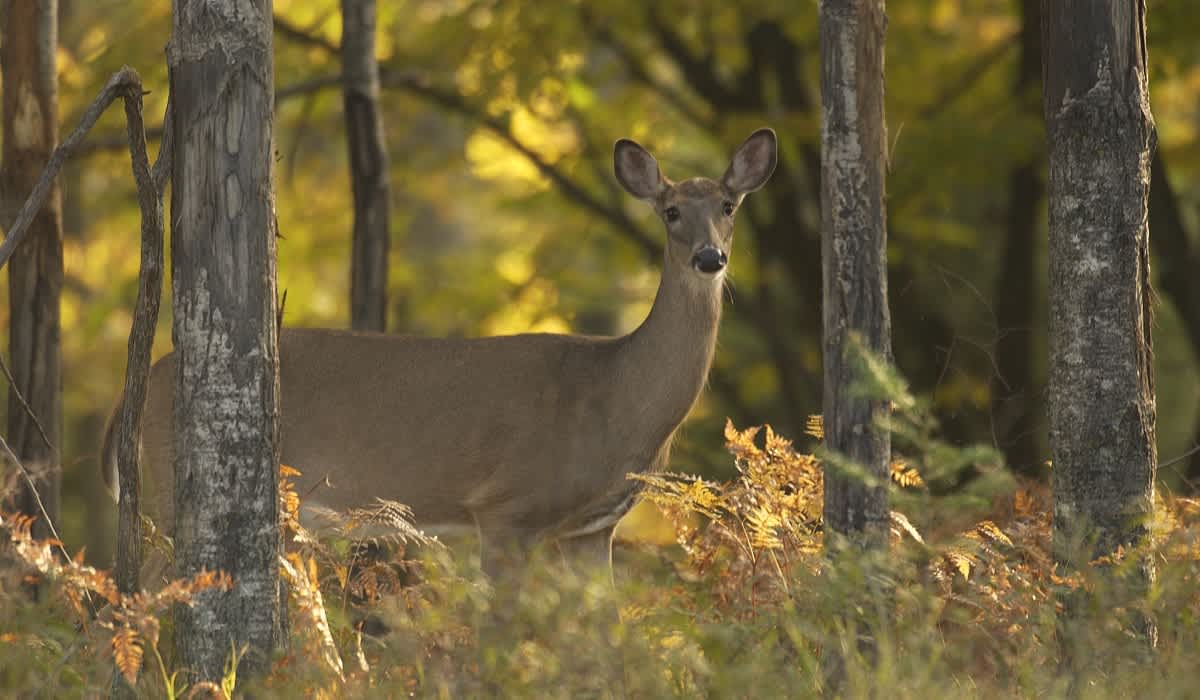Michigan Establishes New Deer Hunting Laws Aimed at Slowing Chronic Wasting Disease
OutdoorHub Reporters 08.13.18

The Michigan Natural Resources Commission in Lansing approved a series of new deer hunting laws aimed at slowing the spread of chronic wasting disease.
The decision was made following months of commission members and Department of Natural Resources staff hearing from hunters, residents and others interested in the long term health of the state’s deer population, and a thorough review of the best available science on chronic wasting disease.
CWD is a fatal neurological (brain and nervous system) disease found in cervids – deer, elk and moose. The disease attacks the brains of infected animals and produces small lesions that result in death.
There is no known cure at this time.
“We hope that by setting these specific CWD regulations we can limit the movement of this disease in Michigan,” said Vicki Pontz, NRC chairperson. “We appreciate all the comments we have received from across the state. Michigan hunters are very passionate about deer and deer hunting, and I look forward to working with them as we continue to confront this threat to wildlife and our valued hunting tradition.”
The disease first was discovered in Michigan in a free-ranging deer in May 2015. To date, more than 31,000 deer in Michigan have been tested for chronic wasting disease, and CWD has been confirmed in 60 free-ranging deer in six Michigan counties: Clinton, Ingham, Ionia, Jackson, Kent and Montcalm.
Listed below, are the approved deer hunting regulations, which will be in effect for the upcoming 2018 deer seasons:
- A statewide ban on the use of all natural cervid urine-based lures and attractants, except for lures that are approved by the Archery Trade Association.
- An immediate ban on baiting and feeding in the 16-county area identified as the CWD Management Zone. This area includes Calhoun, Clinton, Eaton, Gratiot, Hillsdale, Ingham, Ionia, Isabella, Jackson, Kent, Mecosta, Montcalm, Muskegon, Newaygo, Ottawa and Shiawassee counties.
- A ban on baiting and feeding in the Lower Peninsula, effective Jan. 31, 2019, with an exception to this ban for hunters with disabilities who meet specific requirements. The start date on this regulation is intended to allow bait producers and retailers time to adjust to the new rule.
- Effective immediately in the CWD Management Zone and four-county bovine tuberculosis area (in Alcona, Alpena, Montmorency and Oscoda counties), hunters with disabilities who meet specific requirements can now use 2 gallons of single-bite bait, such as shelled corn, during the Liberty and Independence hunts.
- Allowance of all legal firearms to be used in muzzleloader season in the CWD Management Zone.
- A purchase limit of 10 private-land antlerless licenses per hunter in the CWD Management Zone.
- Restrictions on deer carcass movement in the five-county CWD Core Area (Ionia, Kent, Mecosta, Montcalm and Newaygo counties) and the CWD Management Zone.
- Antlerless options on deer licenses/combo licenses during firearms seasons in the five-county CWD Core Area.
- Expansion of early and late antlerless seasons in select counties.
- Changes to regulations regarding wildlife rehabilitators.
In addition, the commission asked the DNR to move forward with:
- An experimental mandatory antler point restriction regulation in a five-county CWD Core Area, including Ionia, Kent, Mecosta, Montcalm and Newaygo counties. The restriction would begin in 2019, provided a survey of hunters shows support for the requirement and specific department guidelines are met. This is intended as a tool to evaluate the effects of antler point restrictions on the spread and prevalence of CWD, along with deer population reduction.
- A hunter-submitted proposal for mandatory antler point restrictions in Huron, Tuscola, Sanilac, St. Clair and Lapeer counties. If hunter surveys support this regulation and specific department guidelines are met, it would be implemented in 2019.
These regulations come after much collaborative work to better understand the scope and pathways of CWD and best management actions. In October 2017, Michigan hosted a CWD symposium that brought together roughly 200 wildlife scientists and other experts from across the country.
More information about these regulations also will be posted next week to the michigan.gov/cwd website. For additional questions, contact the DNR Wildlife Division at 517-284-9453.

